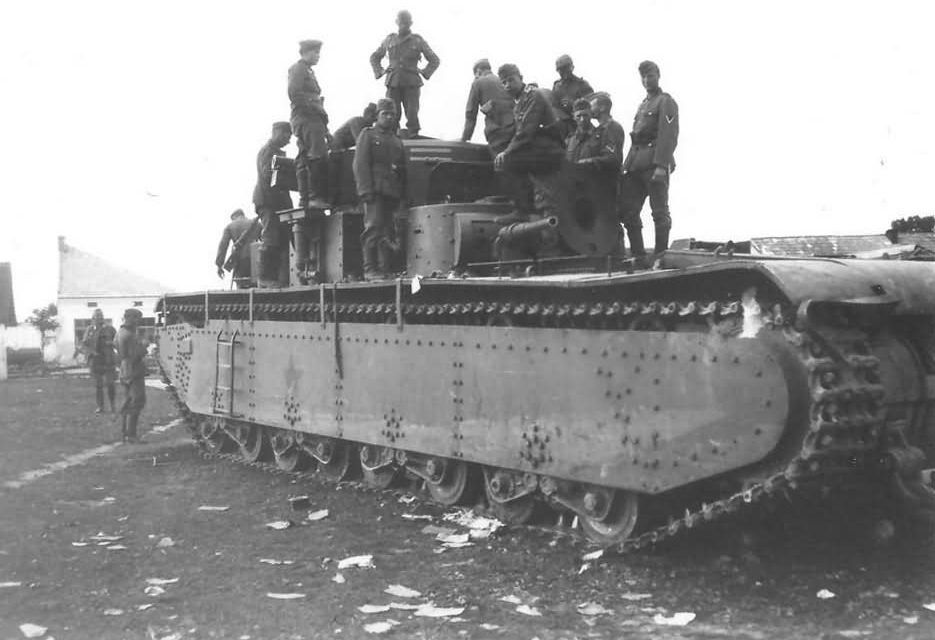
And among the clients of the shoemaker in question, the shoemaker of Vienna, was the Austro-Hungarian Emperor himself, and the shoemaker was invited or managed to get himself invited to receptions, at some of which the Emperor was present, along with his ministers and the field marshals or generals of the Imperial army, a number of whom were bound to arrive wearing riding boots or shoes from the workshops of the shoemaker, with whom they deigned to exchange a few words, a few insignificant but always polite phrases, reserved and discreet, tinged with the gentle, almost imperceptible melancholy of autumn palaces, which, according to Farewell, was characteristically Austro-Hungarian, while the Russians, for example, endured a winter-palace melancholy, and the Spaniards, although here I feel he was stretching the analogy somewhat, were afflicted with the melancholy of summer palaces and raging fires, and the shoemaker, encouraged, some say, by those marks of respect, or driven, according to others, by the needs of his disturbed psyche, began to cherish an idea that had germinated in his mind, and when, after careful cultivation, this idea was ready, he did not hesitate to propose it to the Emperor himself, although to gain an audience he had to mobilize every one of his military and political connections, as well as his acquaintances at the Imperial court. And when all the strings had been pulled, the doors began to open and the shoemaker crossed thresholds and passed through vestibules, entering rooms each darker and more magnificent than the one before, although it was a satin darkness, a regal darkness, in which footsteps did not echo, first because of the quality and thickness of the carpets, and secondly because of the quality and suppleness of the shoemaker’s footwear, and when he was led into the final room, there, on an absolutely everyday chair, was the Emperor, accompanied by a number of his advisers, and although these advisers cast a cool and even perplexed gaze upon the shoemaker, as if they were thinking, What on earth is that individual doing here, what bee has got into his bonnet, what crazy plan has hatched in his mind and prompted him to request and obtain an audience with the sovereign of all Austro-Hungarians, the Emperor himself, by contrast, welcomed him with expressions of affection, as a father welcomes his son, and spoke of shoes and shoemakers, Lefebvre of Lyon, whose fine shoes were inferior to those of his dear friend, Duncan & Segal of London, whose excellent shoes were inferior to those of his loyal subject, and Niederle, based in a small German village whose name the Emperor could not remember (Fürth, the shoemaker reminded him), whose shoes were extremely comfortable but nevertheless inferior to those of his enterprising compatriot, and then they spoke of the hunt and hunting boots and riding boots and various kinds of leather and ladies’ shoes, at which point the Emperor firmly steered the conversation towards more wholesome topics, saying, Gentlemen, Gentlemen, a little restraint, as if he had not brought up the subject himself and his advisers were to blame, which imputation they and the shoemaker were only too glad to accept, apologizing profusely, until finally they got down to the real reason for the audience, and while each of those present helped himself to another cup of tea or coffee or refilled his glass with cognac, all eyes turned expectantly towards the shoemaker, who, taking a deep breath, intensely aware of the moment’s gravity, and moving his hands as if caressing the whorled petals of an inexistent but imaginable, indeed a probable, flower, began to explain his idea to the sovereign. And the idea was Heldenberg or Heroes’ Hill. In a valley known to the shoemaker, between one village and another, there rose a hill, a limestone hill, with oaks and larches growing on its slopes and all sorts of bushes on the higher, craggier parts, a green and black hill, although in spring it put on colors worthy of the most exuberant painter’s palette, a hill that was a joy to behold from the valley floor and a sight to meditate upon when viewed from the high ground on either side of the valley, a hill that seemed to have been transported from another world and set down there as a reminder to man, to steady the heart, to soothe the soul, to delight the senses. Unfortunately the hill had an owner, the Count of H., a large landholder in the region, but the shoemaker had already solved that problem by negotiating with the count, who had initially been unwilling to sell even an unproductive piece of his land, it went against his proprietary instincts, explained the shoemaker with a modest smile, as if he could see it from the other man’s point of view, but finally, after a considerable sum had been offered, the poor count came around to the idea. The shoemaker’s plan was to buy the hill and convert it into a monument dedicated to the heroes of the Empire. Not just the heroes of the past and the heroes of the present, but also the heroes of the future. In other words the hill would serve both as a cemetery and as a museum. How would it serve as a museum? Well, each hero the Empire had produced would have his life-size statue erected on the hill, and there would even be statues of certain foreign heroes, but only in very special cases. How would it serve as a cemetery? Well, that was simple: it would be the burial place for the heroes of the Fatherland, as nominated by a committee of army officers, historians and lawyers, all of whose decisions would have to be approved by the Emperor. So the heroes of the past, whose skeletons, or ashes rather, were in all likelihood irrecoverably lost, would rest in peace forever on that hill, represented by statues, which would reflect as accurately as possible what was known about their physical characteristics from history or legends or oral traditions or novels, along with contemporary and future heroes, whose bodies could be got hold of, so to speak, by the civil servants of the Empire. What did the shoemaker ask of the Emperor? First of all, his consent and blessing, a sign that the project met with his approval, secondly, the financial support of the state, since on his own he could not meet all the costs involved in such a pharaonic enterprise. In short, the shoemaker was prepared to pay from his own pocket for the acquisition of Heroes’ Hill, its conversion into a cemetery, the fence that would surround it, the paths that would give every visitor access to its furthest corners, and even the statues of certain heroes who were very dear to his patriotic heart, as well as providing for three gamekeepers already employed on one of his country properties, who could work as cemetery guards and gardeners, single, strong men one could rely on to dig a grave or drive away nocturnal tomb raiders. The rest, that is to say, the hiring of sculptors, the purchase of stone, marble and bronze, the ongoing administration, permits and publicity, shifting the statues, the road connecting Heroes’ Hill to the main Vienna road, the ceremonies that would be have to be organized at the site, transport for families of the deceased and mourners, the construction of a small (or not so small) church, etc., etc., all this was to be paid for by the state. And then the shoemaker expatiated on the beneficial moral effects of such a monument and spoke of the old values, what remained when all else fled, the twilight of human endeavor, thought flickering before the onset of darkness, and when he had finished speaking, the Emperor, with tears in his eyes, took the shoemaker’s hands, leaned close to his ear, and, in a voice that was choked with emotion yet firm, whispered words that nobody else could hear, then he looked into the shoemaker’s eyes with a gaze it was not easy to meet, but the shoemaker, also on the brink of tears, met it without blinking, and then the Emperor nodded his head several times, reaffirming his assent, and looking at his advisers, said, Bravo, perfect, excellent, to which they replied, Bravo, bravo. So that was that, and the shoemaker left the palace rubbing his hands, beaming joyfully. Just a few days later the sale of Heroes’ Hill was sealed, and the impetuous shoemaker, without waiting for an official confirmation, gave the go-ahead for a team of laborers to undertake the first stages of the project, supervising them personally, having found humble lodgings in the nearest hamlet or village, without a thought for his personal comfort, deeply absorbed in his work as only an artist can be, regardless of the weather, oblivious to the rain that often flooded the fields in that part of the country and the storms that traversed the steel-gray skies of Austria or Hungary, marching inexorably westwards, storms like hurricanes drawn towards the shadowy masses of the Alps, and the shoemaker watched them pass, water dripping from his overcoat and dripping from his trousers, his shoes sinking into the mud but not leaking at all, an absolutely magnificent pair of shoes, to which no praise or rather only the praise of a true artist could do justice, a pair of shoes for dancing or running or working in the mud, a pair of shoes that would never leave their owner in the lurch or let him down, and to which, sadly, the shoemaker paid scant attention (his assistant, having brushed off the mud, polished them every night, he or the young potboy at the inn, while the shoemaker lay exhausted, sprawled on the rumpled sheets, sometimes not even properly undressed), absorbed as he was in his obsessional dream, marching on through his nightmares, on the far side of which Heroes’ Hill awaited him always, grave and quiet, dark and noble, his project, the work of which only fragments are known to us, the work we sometimes think we know but which in fact we hardly know at all, the mystery we carry in our hearts and which in a moment of rapture we set in the center of a metal tray inscribed with Mycenaean characters, characters that stammer out our history and our hopes, but what they stammer out in fact is nothing more than our defeat, the joust in which we have fallen although we do not know it, and we have set our heart in the middle of that cold tray, our heart, our heart, and the shoemaker shivered in his bed and went on repeating the word heart and also the word gleam and it seemed he was drowning and his assistant came into the room at that cold inn and spoke to him in comforting words, Wake up, Sir, it’s only a dream, Sir, and when the shoemaker opened his eyes, eyes which a few seconds before had beheld his heart still beating in the middle of a tray, his assistant offered him a cup of warm milk, to which his only reply was a half-hearted swipe, as if the shoemaker were attempting to brush away his nightmares, and then, looking at his assistant as if he hardly recognized him, the shoemaker told him to stop fooling around with milk and bring him a glass of cognac or some eau-de-vie. And so he went on, day after day and night after night, in fair weather and foul, digging deep into his own funds, since the Emperor, after having wept and cried, Bravo, excellent, had not said another word, and his ministers too had opted for silence, likewise the most enthusiastic of the advisers, generals and colonels, and although without investors the project could not go ahead, the shoemaker had got it going all the same, and now it was too late to stop it. He was hardly to be seen in Vienna any more, and only when engaged in fruitless petitioning, for he spent every minute he could at Heroes’ Hill, supervising the work of his ever less numerous laborers, mounted on a hardy hack or nag inured to the inclement weather, as tough and stubborn as its master, who, when the situation called for it, would not hesitate to dismount and get his hands dirty. At first, news of his idea spread like nimble wildfire lit by a mocking god to amuse the public, but then it went the way of all things, subsiding into oblivion. A day came when nobody mentioned his name any more. And then a day when people began to forget his face. His shoemaking business probably fared better than he did over the years. Occasionally someone, an old acquaintance, would see him in the streets of Vienna, but the shoemaker no longer greeted anyone or replied to greetings, and no one was surprised when he crossed to the other side of the street. A difficult, confusing period had begun, a terrible period indeed, in which difficulty, confusion and cruelty were as one. Writers went on invoking their muses. The Emperor died. A war broke out and the Empire collapsed. Composers went on composing and the public kept going to concerts. Nobody remembered the shoemaker any more, except, at odd and fleeting moments, the lucky few who still had a pair of his splendid, long-wearing shoes. For the shoemaking business too had been affected by the worldwide crisis and it changed hands and disappeared. The following years were even more confused and difficult. People were assassinated and persecuted. Then another war broke out, the most terrible war of all. And one day Soviet tanks rolled into the valley and, looking through binoculars from the turret of his armored vehicle, the colonel in charge of the tank regiment saw Heroes’ Hill. And the caterpillar tracks creaked as the tanks approached the hill, which gleamed like dark metal in the last rays of the sun fanning out across the valley. And the Russian colonel got down from his tank and said, What the hell is that? And the Russians in the other tanks got out too and stretched their legs and lit cigarettes and stared at the fence of black wrought iron surrounding the hill and the massive gate and the letters cast in bronze, mounted on a rock at the entrance to inform the visitor that this was Heldenberg. And a farm laborer, who as a child had worked there, said when asked that it was a cemetery, the cemetery where all the heroes of the world would be buried. And then, after having broken open three big, rusty padlocks, the colonel and his men went in through the gate, and walked along the paths of Heroes’ Hill. And they saw neither statues nor tombs but only desolation and neglect, until at the very top of the hill they discovered a crypt that looked like a safe, with a sealed door, which they proceeded to open. Inside the crypt, sitting on a grand stone seat, they found the shoemaker’s body, his eye sockets empty as if he were never to contemplate anything but the valley spread out below Heroes’ Hill, and his jaw hanging open, as if he were still laughing after having glimpsed immortality, said Farewell. And then he said: Do you understand?







